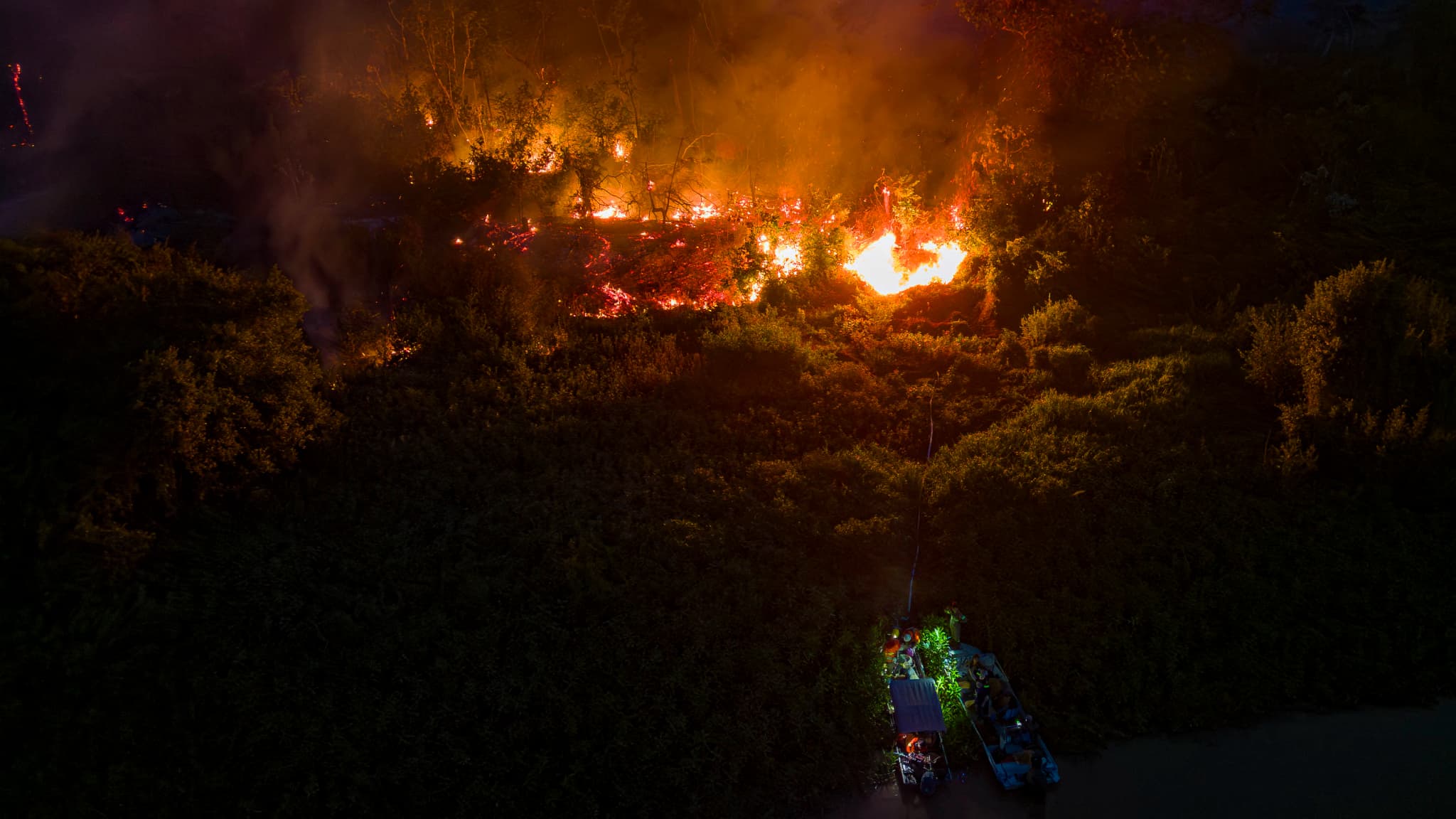
Fires are sweeping through the largest wetlands on the planet, putting many animals at risk
The Pantanal, the largest wetland on the planet, is in the grip of several violent fires. The wildlife living there is at great risk, threatened by smoke and starvation.
The largest wetland on the planet destroyed by fire. The Pantanal, a usually green region in the far west of Brazil, has been witnessing intense forest fires for several days. This phenomenon also destroys many local animals including tigers, toucans, monkeys and even large reptiles.
More than 260,000 hectares of vegetation have already been burned, and the fire continues to grow due to extremely violent winds and high temperatures – more than 40 degrees Celsius at the end of the morning. These factors combined with major drought in the Southern Hemisphere have caused the number of fires to rise.
‘A lot of fires are not natural’
According to what was reported by the Brazilian Space Research Agency (INPE). CBS Newsthere were 2,387 fires in the Pantanal during the first 13 days of November, an increase of more than 1,000% compared to the entire month of November 2022.
Biologist Gustavo Figueroa, president of the environmental society SOS Pantanal, explains to the American channel, “The Pantanal is a region accustomed to fires. Usually, they regenerate naturally. But many fires are not natural.”
Already in 2019, the area was devastated by fire. Experts fear that these phenomena are too close together to allow the ecosystem to get back on its feet.
According to climate experts, climate change leads to an intensification of extreme events such as forest fires, but also drought. The latest report by IPCC experts highlights that the likelihood of “catastrophic wildfires” is expected to increase by between 30% and 60% by the end of this century.
Open air cemetery
The large wildlife that lives in this area is threatened. Thousands of animals have already died due to the fire, while “others died from smoke inhalation,” explains veterinarian Araceli Hamann.
Direct exposure to fire and smoke is not the only one responsible for the coming disaster for this ecosystem. The resulting famine threatens to cause severe damage. The vet saw many dead animals, including insects, reptiles, amphibians, and small mammals.
“Part of the invisible food chain” is destroyed. Wildlife is therefore at risk of a “domino effect”, a collapse from the bottom up, potentially endangering the jaguar population.
Most important articles

“Unapologetic pop culture trailblazer. Freelance troublemaker. Food guru. Alcohol fanatic. Gamer. Explorer. Thinker.”
